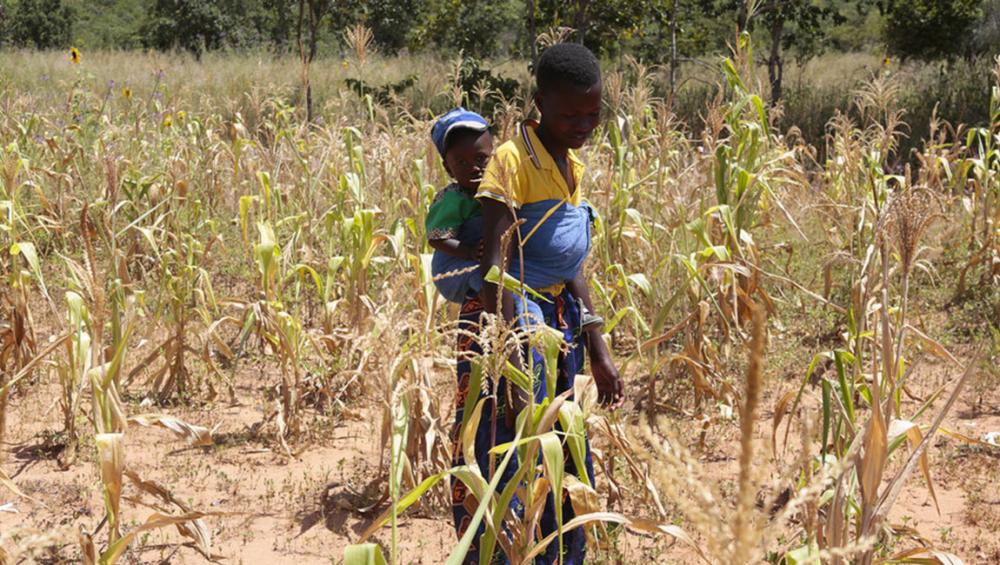Just Earth News | @justearthnews | 08 Aug 2019

WFP/Tatenda Macheka
New York, Aug 8 (JEN): With Zimbabwe now experiencing its “worst-ever hunger crisis”, the UN food relief agency has revised its humanitarian appeal to step up food assistance to people most affected by drought, flooding, and economic stagnation.
“Yesterday the humanitarian community launched an urgent appeal for funds to respond to the country's very difficult humanitarian situation”, World Food Programme (WFP) Spokesperson Herve Verhoosel told reporters in Geneva on Wednesday. “WFP is set to increase aid, especially for drought-affected residents, but also to build community capacity to respond to climate shocks”.
Zimbabwe was once known as leading food producer in the region, one of the bread baskets of Africa, but its problems were exacerbated earlier this year when Cyclone Idai struck, affecting around 570,000 Zimbabweans, together with large parts of Mozambique and Malawi.
The revised humanitarian appeal covers January 2019 through to April 2020, with a total requirement of $331.5 million need from this point onwards.
‘Additional urgent assistance' required
More than one-third of the rural population, or some 3.6 million people, will be food insecure by October, and by January the figure is expected to increase to 5.5 million during the inter-harvest season, according to WFP. Moreover, most of Zimbabwe’s 60 districts will exhaust their maize stocks by October.
“This accounts for 60 per cent of the rural population”, explained Verhoosel, adding that the UN agency is providing food assistance to 700,000 people in August.
And “when crop stocks decline, we will scale up for the season between harvests and help 1.7 million people in October-December and two million in January-April, but only if funding allows it”, he added.
WFP needs $173 million to implement its response plan in the next nine months consisting of a wide-ranging programme of humanitarian actions. The agency is asking the international community to quickly make the funds available.
Verhoosel flagged that following an emergency response, “we need to think about the long term and continue building local capacity”.
Citing that “the recent abandonment of the US dollar and other currencies for commercial transactions” has negatively impacted the economy, he said that while the actual rates could be “even higher”, the official year-on-year inflation rate “reached 176 per cent in June, with food prices soaring by 252 per cent”.
“Climate shocks such as cyclones or drought also have an immediate impact, especially on the rural population”, underscored the WFP spokesperson, calling on the international community to “respond favorably to this request for funds to respond to this urgent situation”.